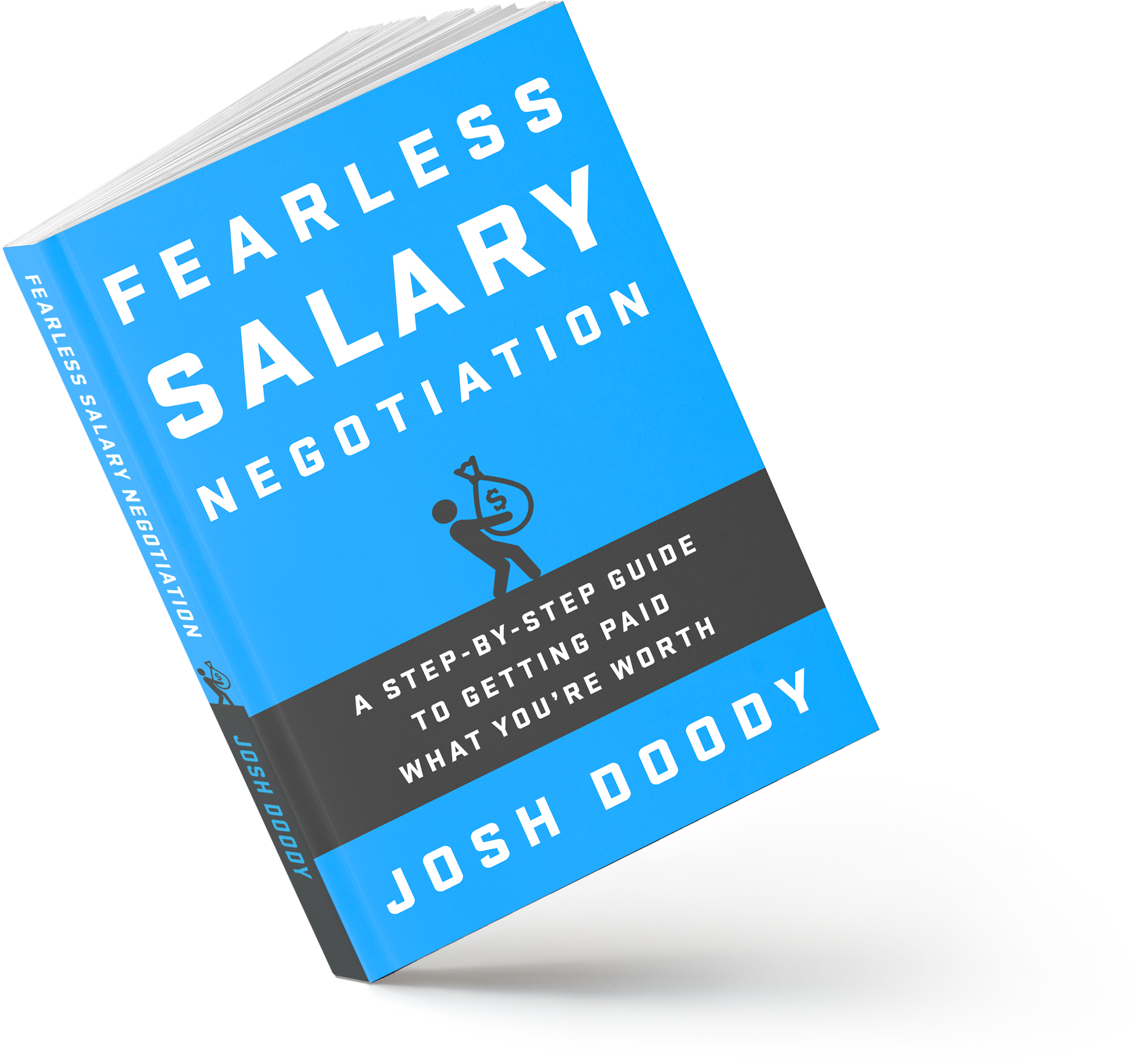
Why you should negotiate your starting salary
You should negotiate staring salary. Here's why.
You should negotiate your starting salary to maximize your pay when starting a new job. Here's why.

You should negotiate your starting salary to maximize your pay when starting a new job. Here's why.
You’ve aced your interview and the company is about to make you an offer. This is when many people will breathe a sigh of relief and begin to celebrate, assuming the hard work is over. Maybe you’re just happy to be leaving your old job, or excited to have a chance to work at a new company.
Don’t relax yet! This is an opportunity to make the most of this transition and maximize your salary.
There are two factors that cause most people to leave money on the table when they negotiate their new salary—lack of information, and reticence to negotiate with a potential employer or manager. This chapter addresses both of these issues.
From the moment you start the negotiation, there’s a maximum salary the company can or will pay you for your skillset and experience in their industry. Your goal is to get as close to that maximum salary as possible. First, you’ll do research to understand your market value and consider the minimum salary you require to accept the job. Then you’ll negotiate to maximize your salary.
Here’s the headline: You should absolutely negotiate your salary!
Most people don’t get many job offers, and they see them as special snowflakes that come along only a few times in a lifetime. This reverence for new jobs spills over into the negotiation process, so they treat negotiations very gingerly, afraid to jeopardize them.
From the recruiter’s perspective, your job offer is not a special snowflake. The job you’re applying for is probably one of many that particular recruiter is trying to fill, and one of many more that particular company is trying to fill—it’s no big deal to them. Most recruiters make job offers all the time, and they tend to see everything as numbers—the candidate has an applicant ID, the job requisition has a number, the pay grade for the job is just a range of numbers. If they can get a good candidate at a good salary, that’s a good day for them.
It’s not just numbers to you because the outcome of this negotiation will affect your life. The numbers have real meaning to you, so you have far more skin in the game than the recruiter. But you’re leaving money on the table—possibly the equivalent of multiple paychecks per year—if you simply accept the company’s first offer and it’s in your best interest to negotiate.
I’m going to show you how to approach this negotiation like the recruiter or hiring manager you’re negotiating with. Don’t be tentative or hesitant. Don’t be afraid of offending anyone. Be your own advocate. Fight for as much money as you can get because this is your final chance to maximize your pay before you’re in the door, confined by the rules for raises and promotions inside the company.
We will focus almost exclusively on base salary because your initial base salary has a big impact on your future earning potential. It is the one number that will directly affect every paycheck you get.
Recruiters and hiring managers like to present an offer in terms of “your total compensation package” or “total comp” because that number is usually quite a bit bigger than the base salary. It often includes target bonuses, stock options, etc. I recommend ignoring target bonuses or stock options when you negotiate your salary because the real value of those things is often unknowable. You could hit that bonus, but maybe you won’t. Maybe the company will go public, and maybe it won’t. Those things are often based on factors totally out of your control that may not come to fruition for many years (if at all), so you can’t count on them.
Your base salary is more dependable. And your initial base salary affects your salary every year going forward, so that’s where you should focus during the negotiation.
In some jobs commission comes into play, but I won’t address that directly. Commission is different, and the amount of commission available to a worker varies by industry and job. So I think it’s best to just treat commission like a second component of salary and negotiate them together.

I'm Josh Doody, a professional salary negotiation coach who helps High Earners negotiate their job offers. On average, High Earners improve their first-year compensation by $48,492 with my help.